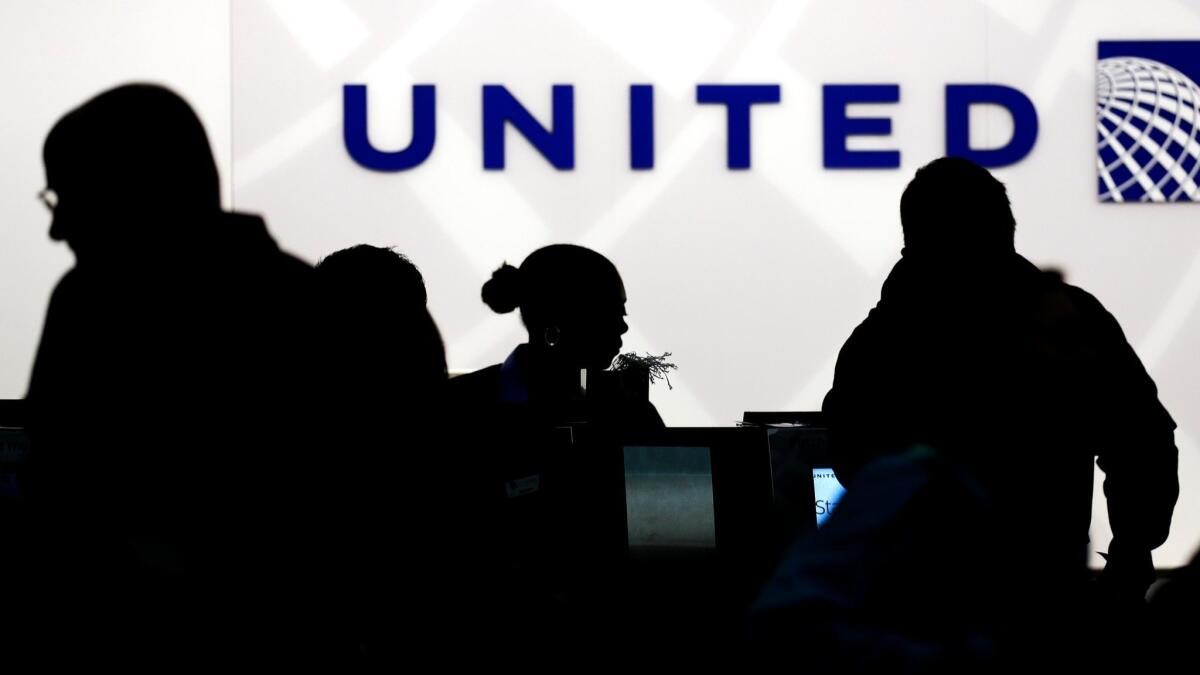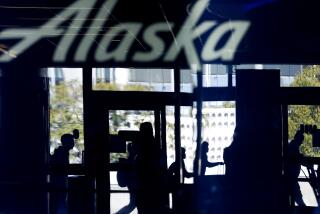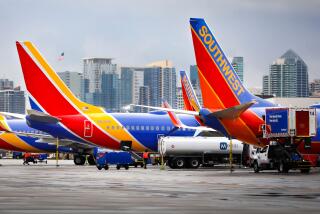United fiasco shows airlines’ power over passengers — and how it might change

Delta, American and United airlines claim the right to eject fliers for smelling bad. JetBlue Airways can remove passengers who wear revealing clothing. Southwest has been accused of kicking off customers for being too fat to fit in a seat.
Airlines grant themselves all sorts of power over who can be removed from a flight, embedded in the fine print that passengers agree to when they click “confirm” to purchase an airline ticket.
These “contracts of carriage” or “conditions of carriage” often go well beyond standard rules such as the prohibition against tampering with smoke detectors in airplane lavatories.
But in light of the incident this week in which a United Airlines passenger was dragged off a sold-out flight, to the shock of his fellow passengers and millions watching it on video, passenger advocates say airlines’ seating policies may now get closer scrutiny.

Here’s United Airlines’ latest PR nightmare. (April 11, 2017)
Most carriage contracts “are largely one-sided benefiting the carriers only,” said Kevin Mitchell, who heads the Business Travel Coalition, an advocacy group for business fliers. “They are unfair because the majority of passengers fly only once a year, and they can’t comprehend all the legalese in the contracts.”
Each airline has its own specific customer agreement, which often exceeds 50 pages in length. The wording can be vague and open to interpretation.
For instance, Delta says it can remove customers whose conduct “creates an unreasonable risk of offense or annoyance to other passengers” — but doesn’t elaborate on what constitutes such behavior.
“The airlines are going to write the contracts in their favor and give themselves as much leeway as possible and the customer as little leeway as possible,” said Douglas Kidd, executive director of the National Assn. of Airline Passengers.
The majority of consumers “don’t realize that airlines have absolute authority to cancel a ticket when they see the need to,” he said.
On Sunday, United booted Dr. David Dao from a Chicago plane scheduled to fly to Louisville, Ky. A video recording of the incident that went viral showed law enforcement officials confronting Dao and then dragging him down the aisle as passengers looked on in disbelief.
United said that it was seeking to bump four passengers from the flight in order to accommodate a group of airline employees who needed to travel to Louisville. The company reportedly offered $400 and a hotel stay to passengers, and later increased the amount to $800 before randomly choosing passengers to be removed when no volunteers came forward.
Though United officials have described Dao as disruptive and belligerent, the company issued an apology Tuesday.
“I continue to be disturbed by what happened on this flight, and I deeply apologize to the customer forcibly removed and to all the customers aboard. No one should ever be mistreated this way,” United Chief Executive Oscar Munoz said in a statement.
The Transportation Department is reportedly investigating whether the airline followed federal rules on overbooking flights, which is a common industry practice. But United has denied reports that the flight was overbooked, saying that it was sold out.
Congress is also getting involved. Lawmakers from both parties, including leaders of the Senate Commerce, Science and Transportation Committee, have sent United a letter demanding that the airline explain its actions and requested an investigation by the Transportation Department.
The United incident comes at a time when the number of bumped passengers is declining across the industry, according to a recent report from the Bureau of Transportation Statistics.
Airlines posted an involuntary bumping rate of 62 per 1 million passengers in 2016, down from 73 per 1 million fliers in 2015. The bureau said the 2016 figure represents the lowest annual rate since 1995. U.S carriers bumped about 40,000 passengers on an involuntary basis last year.
The number of unruly passenger incidents also has fallen in recent years, according to the Federal Aviation Administration. The organization reported 92 unruly passenger incidents in 2016, down from 105 the year before. The FAA said there was a high of 310 incidents in 2004.
But several high-profile cases have helped to keep the issue top-of-mind among fliers.
Actor Alec Baldwin was thrown off an American flight in 2011 for refusing to turn off his mobile phone. The year before, Kevin Smith, the director of “Clerks,” was kicked off a Southwest flight after flight crew allegedly cited his girth. The filmmaker launched a boycott of Southwest and publicized the dispute on social media, saying he was “too fat to fly” and calling the carrier “PR-challenged fatty-haters.”
United’s latest run of bad publicity began last month when it stopped two teenage girls from boarding a flight because they were wearing leggings. But the company later defended the decision, saying that because the girls were flying as “pass travelers” — meaning they were traveling using an employee pass — they were obligated to adhere to United’s dress code.
Airlines often prioritize customers when it comes to involuntary bumping. United states in its carriage contract that minors and people with disabilities are the last to be denied boarding. Other passengers are prioritized by criteria including fare class, itinerary, frequent flier membership and check-in time.
Federal rules require carriers to compensate bumped passengers if the rebooked flight delivers them one hour or later from their originally scheduled arrival time. The compensation amount increases the more the passenger is delayed.
Some advocates say that airlines are exercising more power over consumers as the industry continues to consolidate, leaving fliers with fewer choices.
“They are very strict on passengers. This is what happens when there are four major airlines controlling 80% of the domestic market,” said Andrew Appelbaum, an attorney with the nonprofit group FlyersRights.org.
On Tuesday, the organization called on U.S. Transportation Secretary Elaine Chao to hold a summit with airline CEO’s, passenger advocates and unions for pilots and flight attendants.
“No one believes that continuing to give airlines carte blanche to abuse and assault passengers will make air travel great again,” Paul Hudson, president of FlyersRights.org, said in a statement.
As carriers continue to overbook their flights in an effort to maximize profits, customer friction is bound to continue.
“If you run your system at capacity, and there’s no room for error, then things like this are going to happen,” said Kidd, the head of the National Assn. of Airline Passengers. Carriers need to “take a look at their policies or procedures with regard to overbooking and how much they’re going to offer passengers when they have overbooked.”
“It doesn’t need to be an adversarial relationship between the passengers and the airlines,” he said.
ALSO
United’s CEO turns contrite as fallout spreads from passenger mistreatment
David Dao, United passenger who was dragged from plane, says he’s still in the hospital
United passenger threatened with handcuffs to make room for ‘higher-priority’ traveler
More to Read
Inside the business of entertainment
The Wide Shot brings you news, analysis and insights on everything from streaming wars to production — and what it all means for the future.
You may occasionally receive promotional content from the Los Angeles Times.









